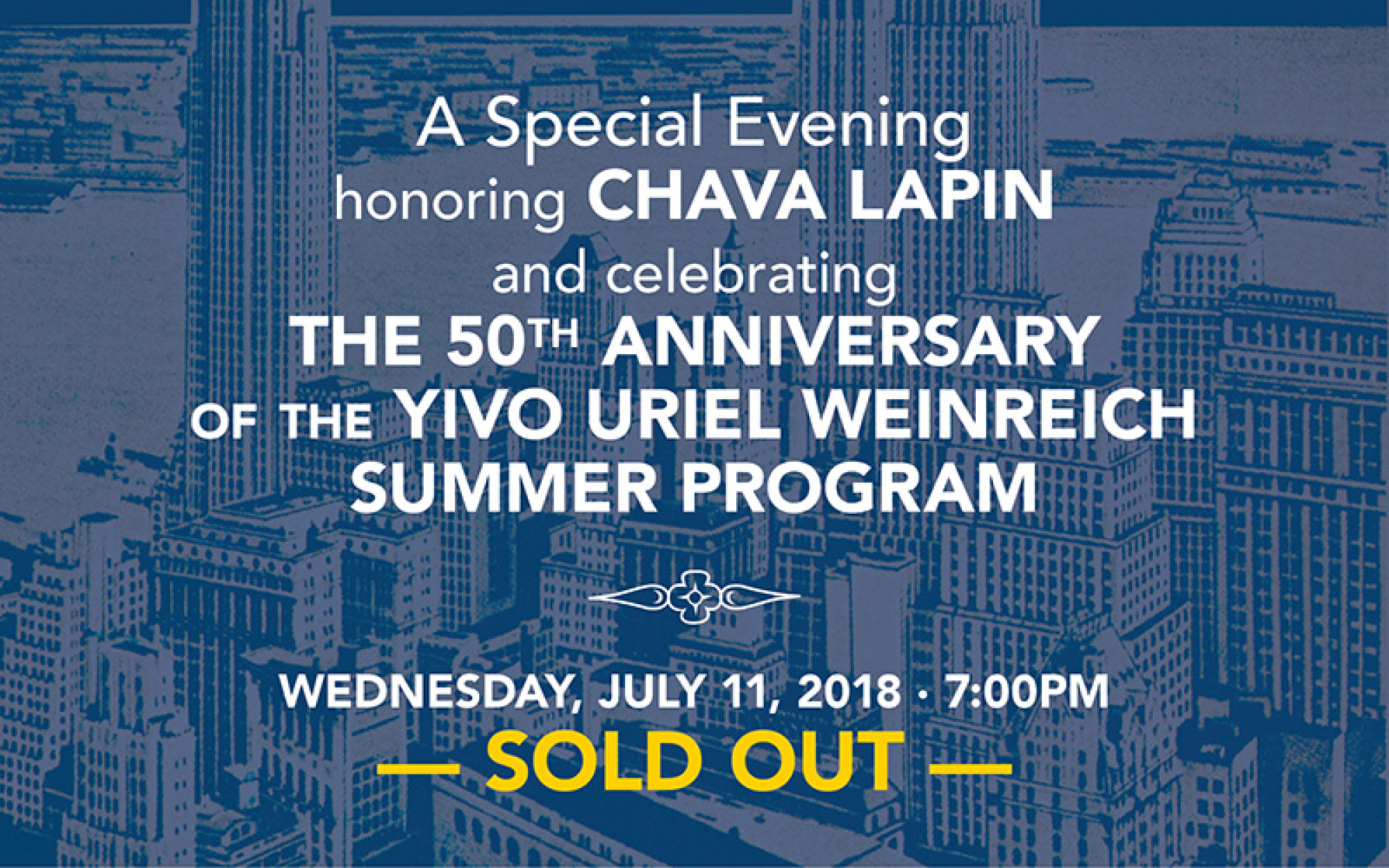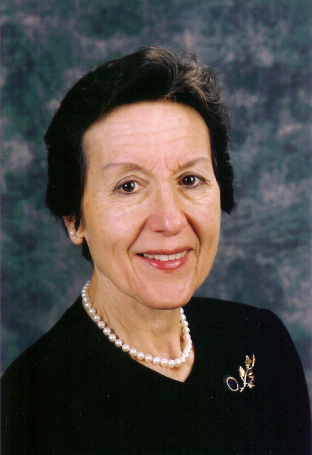
Please join us for a special evening as we honor
Chava Lapin and celebrate the 50th Anniversary of YIVO’s Uriel Weinreich Summer Program!
This program is at capacity. Thank you!
Performances by:
Shane Baker
Eléonore Biezunski
Lauren Brody
Daniel Kahn
Zalmen Mlotek
Miryem-Khaye Seigel
Yelena Shmulenson
Buffet Dinner
Dietary laws observed
About Chava Lapin

Chava (Petruska) Lapin’s life-long commitment to the Yiddish language, as teacher, scholar, and YIVO board member for over four decades, has and continues to inspire generations. Chava was born in Montreal and grew up in a Yiddish-speaking home. She studied at McGill University, where she completed both her undergraduate and doctorate degrees in biochemistry, and moved to New York City in 1957, where she completed a post-doctorate at Albert Einstein College of Medicine. She conducted neurochemistry research at Mount Sinai School of Medicine, publishing over 50 academic papers. Chava began teaching Yiddish at Queens College and Columbia University in the fall of 1973, and in YIVO’s summer program in 1974. For over a decade she also served as Director of Culture and Education for the national Workmen’s Circle. Her husband, Shmuel Lapin, served as YIVO’s Executive Director from 1966 to 1973. She continues to serve on the YIVO Board of Directors, to teach Yiddish in YIVO’s summer program and elsewhere, and to consult on various Yiddish academic projects, including the recent publication of The Comprehensive English-Yiddish Dictionary.
About the Uriel Weinreich Summer Program in Yiddish Language, Literature, and Culture
The Uriel Weinreich Program in Yiddish Language, Literature, and Culture, established in 1968, is the longest-running Yiddish summer program in the world. In partnership with Bard College since 2012, the program offers peerless instruction in the Yiddish language and an in-depth exploration of the literature and culture of East European Jewry and its diaspora communities. The Weinreich Program treats Yiddish as a living language and emphasizes spoken Yiddish. It has trained generations of scholars, teachers, and students, and continues to play a vital role in influencing the field of Jewish Studies, perpetuating the Yiddish language, and supporting a dynamic engagement with East European Jewish culture.































